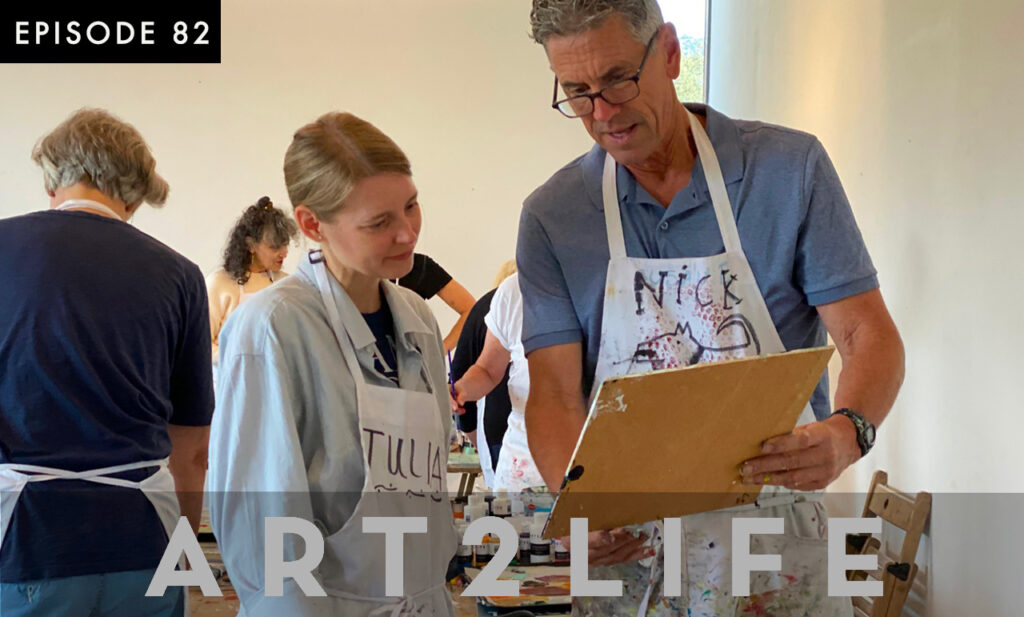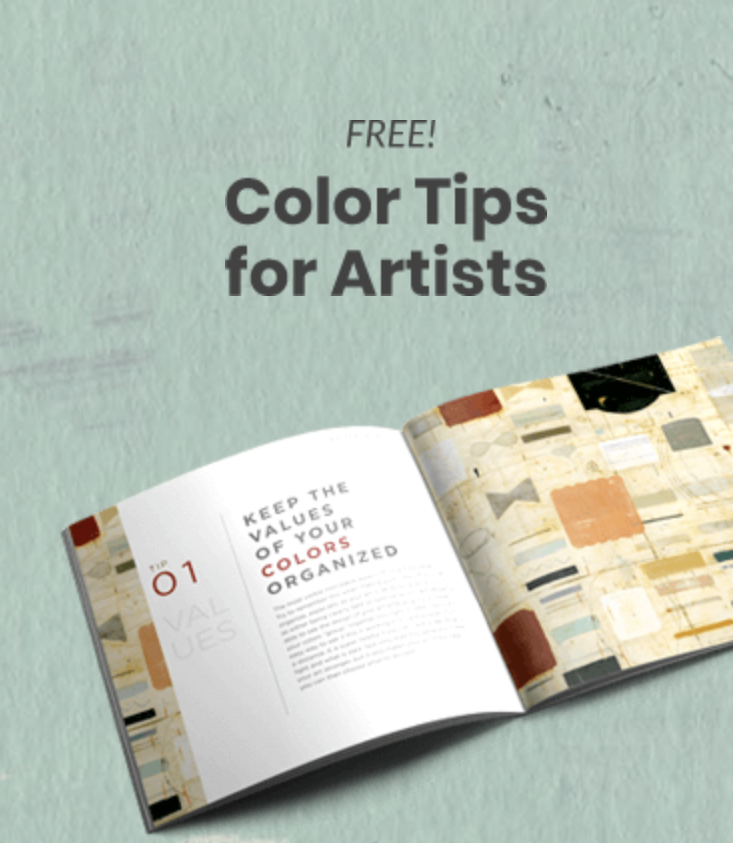
Mindful Objectivity – Nicholas Wilton – Ep 82
May 17, 2023
ON TODAY’S EPISODE
The perception of our art can be different than how we see it. After all, we don’t just make art for ourselves. We make it for others too. And the viewers of our art bring their own perspectives to the canvas. If we’re too focused on authenticity and making personal work, we can lose sight of the objectivity that makes our work universal. Join me as I take a deep dive into the topic of objectivity. We’ll look at what it is, why it’s important, what happens when we don’t have it, how to keep it, and how to get it back. Don’t miss this one!
Listen if you are interested in…
- Why do we lose objectivity? [2:26]
- How vision impacts objectivity [16:08]
- Five tips for regaining objectivity [19:28]
- Intuition as a path to objectivity [25:57]
The importance of objectivity
So much of what I teach is about helping artists make their work more personal. But is there such a thing as work that’s too personal? Maybe not in terms of subject matter, but work that is so personal it loses objectivity and connectivity is not work other people want to see. We need the both personal and the universal aspects of creativity to connect with an audience. But maintaining that balance is tricky. Losing objectivity is a slippery slope because we need authenticity, but we can’t be overly focused on it. If we are, we’ll never make art that’s bigger than ourselves. Art-making is the process of becoming yourself. In order to be your best self you have to express creativity healthily and be aware of how you and your work are being perceived by others.
Infuse fresh perspective
While losing objectivity may be a slippery slope, gaining it back is a short and intentional process. A key component to maintaining our objectivity is time. I can work on a piece for roughly 30 minutes before I start to lose objectivity. Most of us can’t go too long on one thing before we start fighting for clarity. This is why breaks are essential to the creative process! Another way to stay objective in your art-making is cycling through what you’re working on. Whether you love the thing you’re making or not, it makes sense to move on to something else regularly because you’re taking the information you’ve just learned and applying it to the next thing. Adopting this method means you are infusing fresh perspective into everything you do because you aren’t spending all your time on one painting.
We’re all a work in process
Developing an art-making process is yet another way we can bring objectivity to our art. We often get bogged down if we’re spending too much time on the hyper-emotional side of creativity. Don’t misunderstand: Feeling and emotion are VITAL to making personal art. But without balance, we get lost in our own sauce. One way we can stay level is by leaning into our process and becoming more principle-based in our approach. Having a solid framework built on the fundamentals of art-making allows us to evaluate our work objectively. It also helps us create strategies for getting unstuck. If we pay attention to and duplicate our successful creative processes, we create a roadmap for maintaining balance and productivity in our art practice. Listen to this episode for more on objectivity in art-making!
Connect with Nicholas Wilton and Art2Life
Get the Free COLOR TIPS PDF here
- Follow the Sunday Art2Life Vlog here
- Follow Nicholas Wilton’s Art on Instagram
- Follow Art2Life on Instagram
- Subscribe on Youtube
Subscribe to Art2Life on
Apple Podcasts, Spotify, Google Podcasts

Hi! I’m
Nicholas Wilton
the founder of Art2Life.
With over 20 years experience as a working artist and educator, I’ve developed a systematic approach that brings authenticity, spontaneity and joy back into the creative process.
Join me and artists from all over the world in our Free Art2Life Artists Facebook Group or learn more here about Art2Life.
